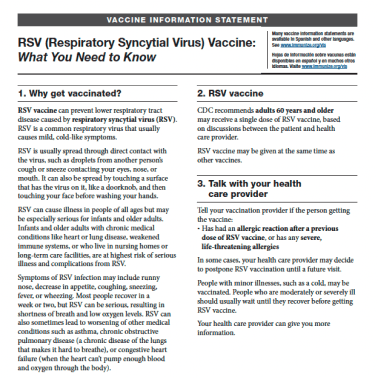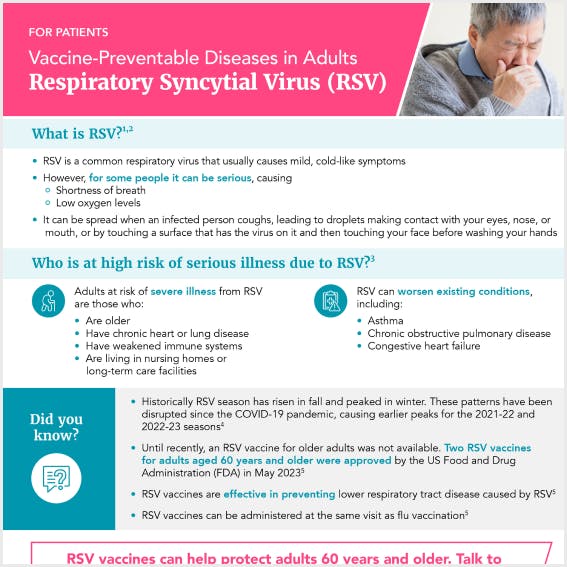Facts About RSV
Older adults, including those with weakened immune systems, chronic heart or lung disease, COPD, or asthma are at risk for severe RSV disease.1
Symptoms in adults are typically mild, but can become severe and can be consistent with lower respiratory tract infections, such as pneumonia.1
Some RSV infections can even lead to hospitalizations or death.3
In most regions of the United States and other areas with similar climates, RSV season generally starts during fall and peaks in the winter.4


RSV Vaccination Eligibility and Administration Information
- Persons 60 years of age and older5
RSV Downloadable Resources
RSV Resources
References
- Clinical Overview of RSV. Clinical Overview of RSV. Centers for Disease Control and Prevention. Reviewed July 3, 2024. Accessed August 23, 2024. https://www.cdc.gov/rsv/hcp/clinical-overview/index.html
- Respiratory syncytial virus infection (RSV). Centers for Disease Control and Prevention. Accessed August 23, 2024. https://www.cdc.gov/rsv/
- RSV in adults. Centers for Disease Control and Prevention. July 3, 2024. Accessed August 16, 2024. https://www.cdc.gov/rsv/older-adults/?CDC_AAref_Val=https://www.cdc.gov/rsv/high-risk/older-adults.html
- RSV in older adults. Centers for Disease Control and Prevention. Reviewed August 30, 2024. Accessed September 16, 2024. https://www.cdc.gov/rsv/older-adults/index.html
- Vaccines for Adults Ages 60 and Over. Centers for Disease Control and Prevention. Reviewed July 3, 2024. Accessed August 23, 2024. https://www.cdc.gov/rsv/vaccines/older-adults.html




